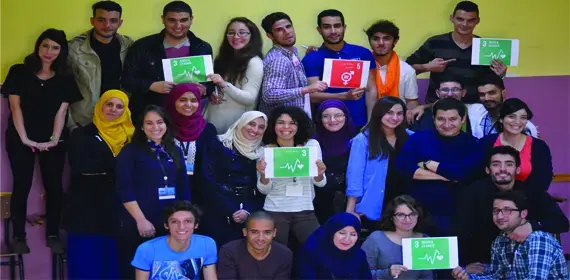Investing in Algerian Youth: Opportunity window to the demographic dividend
Demographic dividend is the economic growth achieved by having proportionally more people of working age.
When a household has fewer children that they need to take care of, and a larger number of people who have decent jobs, the household can save and invest more money. When this happens on a large scale, economies can benefit from a boost in their growth.
How do we help create a demographic dividend?
The key to harnessing the demographic dividend is enabling young people – and adolescent girls in particular – to enjoy their human rights to achieve their potential in life.
Empowerment + Education + Employment = Demographic Dividend
Sustainable development cannot be achieved without assuring that all women and men, and girls and boys, enjoy the dignity and human rights to expand their capabilities, secure their reproductive health and rights, find decent work and contribute to economic growth.
Defining the necessary policies and investments to secure that future, demands that we know the size, sex, location and age structure of the present and future population, so that we can tailor investments for inclusive growth – and leave no one behind.
Realizing demographic dividend requires multiple intersectoral investments. Yet the most essential, without which no progress will be made, are building the capabilities of young people and ensuring their rights and freedoms to achieve their potential. Young people need to have the chance to gain the education and experience to succeed in a competitive global workplace that demands more skills, education and technical expertise than ever before.
Building on the potential of the young Human Capital
There are more young people in the world than ever before: Some 1.8 billion people are between ages 10 and 24. In Algeria, this age range represents 24% of the total population in 2015.
When empowered and given the right opportunities, youth are effective drivers of change. UNFPA supports communities to fulfill the rights and participation of young men and women and adolescent girls and boys.
UNFPA ensures delivering the sexual and reproductive health knowledge and services that have high multiplier effects for achieving a demographic dividend, including programmes for youth empowerment; improvements in maternal, newborn and child health; universal access to contraception; prevention of HIV and sexually transmitted infections and the elimination of gender-based violence and harmful practices.
UNFPA partners with young people, particularly through supporting peer educators, helping them participate in decisions affecting them, and strengthening their ability to advance human rights and development issues such as health, education and employment.


